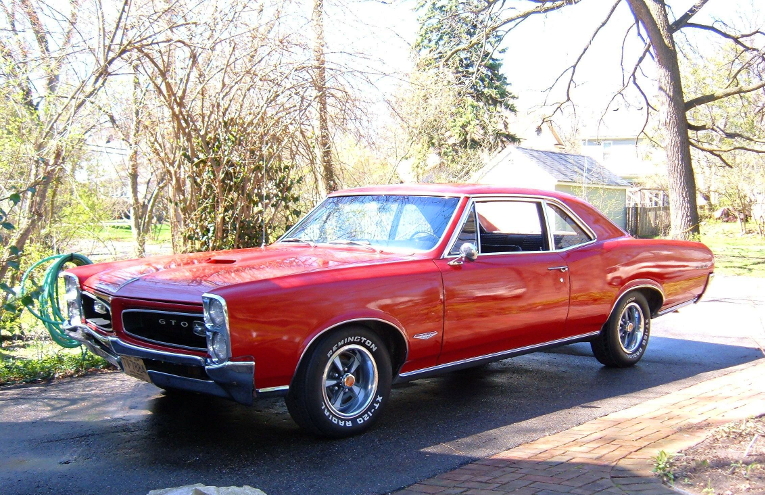From the Files of a Recovering Ignorant Jackass
When I was in college, I needed a summer job so I could sock away money and have the funds on hand to buy food during the school year. I spent two of those summers permanently attached to lawnmowers and weedeaters, working on a landscape crew. Our eight-person crew was an interesting mix – diverse in age, race, and educational background.
The foreman was a middle-aged guitarist who had never been able to catch a break in the music industry. His specialty was driving around in his air-conditioned truck and pointing his index finger out the window at areas we were supposed hack to pieces. We had two men in their thirties. The one who spoke with the “southernest” southern accent I had ever encountered shot wedding photos on weekends to earn extra cash, thanks to the photography training he had received during his stint in the Navy. The other moved at such a slow pace, he might as well have been cutting grass with a pair of scissors; you had to wonder how he was able to keep his job, until you realized how good-natured and pleasant he was. We had an introverted thirtyish woman who had burned out on her academic job of researching how chimpanzees communicate. There was one young guy, a competitive triathlete at a snooty private high school, whose mom worked for the corporate overlords of the landscaping company. Rounding out the crew were two more guys my age who were not on the college track. One of them was loud and proud; he had not yet decided which of two career paths offered a better future: (1) marry a rich woman or (2) become a porn star. The other, let’s call him Jim, was way more pragmatic. He hoped to do good work on the landscape crew and then rise up the ranks in the company to earn a decent salary.
Like everyone else on the crew, except for me, Jim drove an old beat-up car to work each morning. I took my chances commuting each day by bicycle on the shoulderless, traffic-choked speedways of suburban Atlanta. I’d like to pretend that it was a practical, politically-motivated choice to ride my bike, but really it was just that I couldn’t afford a car. Nowadays I still commute mostly by bike, partially for those nobler reasons, but mostly because riding a bike makes me feel like a kid!
One day, late in the summer while the crew was sitting in the shade eating lunch, Jim made the mistake of announcing his plan to upgrade his ride. Without revealing the intense jealousy lurking in my head, I asked him, “What are you going to get?” In his usual taciturn way, he answered, “Chevy Beretta.” We all nodded – it made good sense. Now, a Ford Mustang or a Chevy Camaro would have been way higher on the status ladder for a young southern man, but given the reality of his income, he needed to set his sights lower. And the Beretta was still respectable. First of all, it was an American car, hugely important in the culture of that time. Second, it was kinda sporty-looking and kinda fast – in other words, kinda manly. Third, the sticker price and operating costs wouldn’t be anywhere near those of the iconic muscle cars. Still, a Beretta wasn’t super-cheap, so being the tactless jackass that I was, I asked him how he was going to afford it. You see, I had been combing through Autotrader magazines and want ads for a car – any car – I could afford to buy, and, like the gas tank in a Mustang or Camaro, had come up empty. He responded with confidence. He had saved up money for a down payment, he had checked prices on used vehicles from a nearby dealer, and dadgummit, he was going to head over there right after work and get his car.
The next morning, after most of the crew had already arrived at work, Jim drove up in his new car and parked alongside the rest of our beaters. Ridicule swarmed our thoughts as we beheld his shiny new Geo Storm.
The Geo Storm was sold by General Motors, but was built by Isuzu, so it failed to check the first box of being American-made. But more importantly to our male-dominated crew, it had failed to check the second box. Nothing about a Geo Storm says “manly.” It was a subcompact pretending to be a sports car. I don’t know who started the teasing – I hope to hell it wasn’t me – but someone asked, “What happened, where’s the Beretta?” (In fact, I’m going to pin it on the rich kid from the private high school, but I definitely have to take some blame). Reading that opening question about the car purchase, it can seem like an honest, fact-finding question, but it was loaded with scorn, and Jim knew it. His taciturn answer: “Shut the fuck up.” The sad part is, that opening question was by far the nicest one we asked him that morning. If he wasn’t already riddled with post-purchase dissonance, questions like, “Do you think you can still get your balls back from the dealer,” would have sealed the deal.
The truth is that Jim made a practical choice. He had bought something he could afford. He wasn’t a pretentious jerk, a privileged snob, a hyper-critical college know-it-all, or a buffoon with delusions of grandeur. He was a hard worker who needed reliable transportation to get to and from work. He didn’t overreach, and he didn’t completely give in to the pressures of consumerism. With many years of hindsight and a better understanding of our society’s overconsumption predicament, I wish I had had the courage to side with him. I wish I had seconded his comment to “shut the fuck up,” or at least kept my own dumb mouth shut.
On a bright and sunny morning during my last week of working on the crew before heading into my junior year of college, the foreman drove his truck to our usual starting spot. He parked right next to Jim’s Geo, stepped down from the truck, and approached our group. It was odd to see him from that angle, standing on the ground and not pointing at anything from a window. He asked for our attention and announced that he was promoting Jim to assistant foreman. Good for Jim. Car culture sucks.
Note: Bart Hawkins Kreps’s fine critique of car culture brought to mind the subject matter of this article.
Teaser photo credit: By Freesek from En-Wikipedia – En-Wikipedia, initial image was here., CC BY-SA 3.0, https://commons.wikimedia.org/w/index.php?curid=2249682






